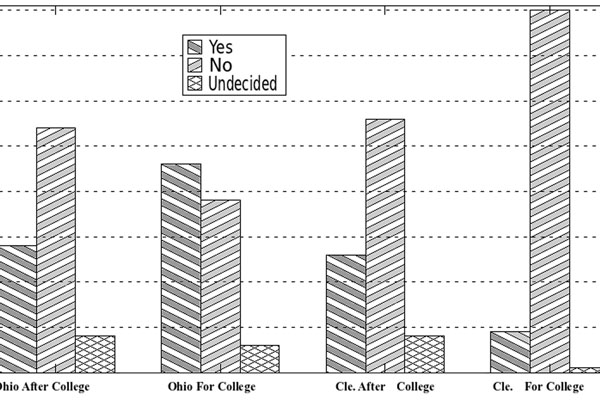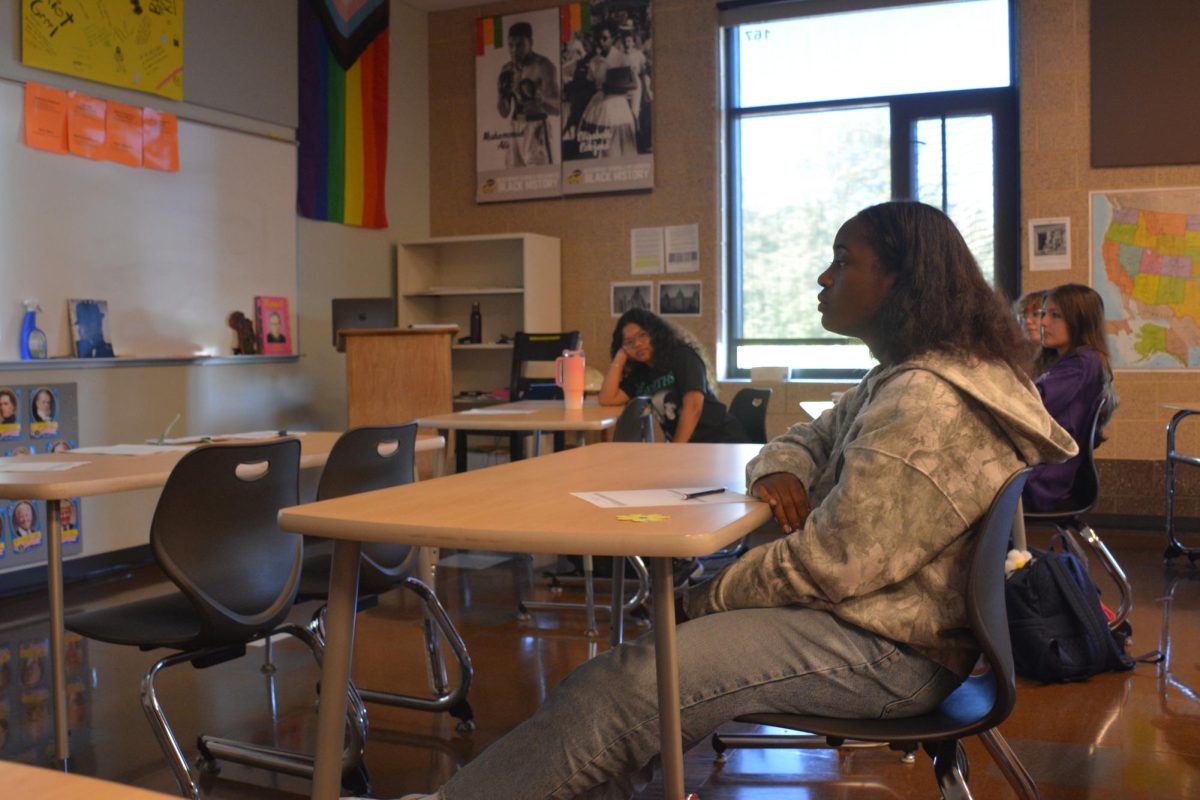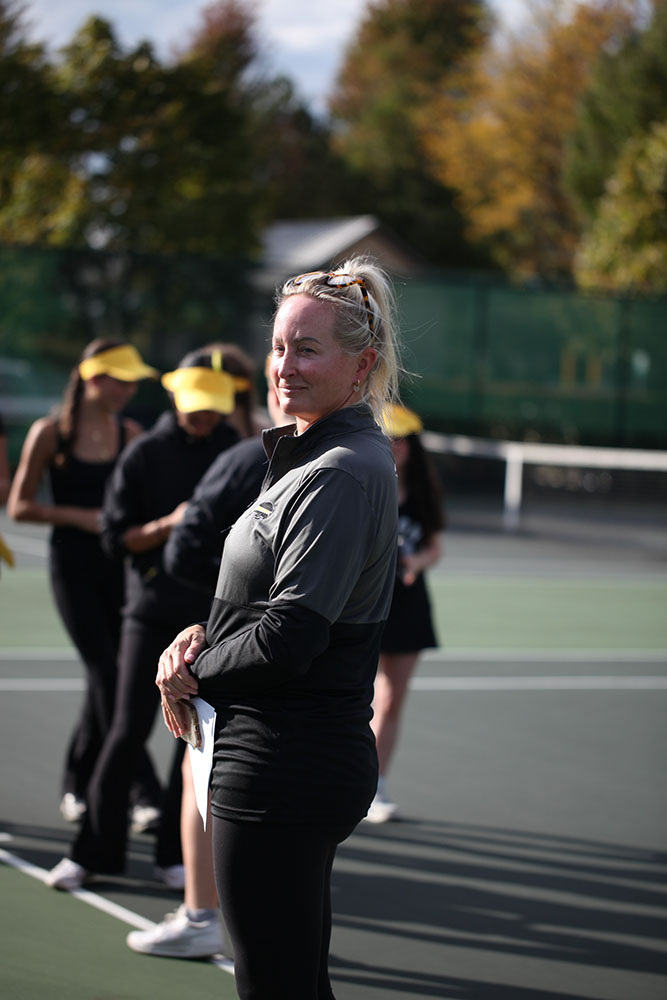According to a Beachcomber survey, the majority of BHS seniors plan to leave Ohio after college.
Our survey was designed to measure BHS students’ commitment to stay in the area.
A 2008 study conducted by the Ohio Board of Regents showed that just 66% of Ohio public graduates were still in state three years after graduation. However, their figures only count people who are employed, assuming that the other 33% left the state. Even taking the high unemployment rate into consideration, those figures suggest that a high percentage of graduates do not return.
The Board of Regents study is a measure of Ohio’s “brain drain,” a term used when a large number of educated and skilled people leave their native area to another location, for reasons such as job opportunities, weather or family. This term is not unique to Ohio; other states, countries and regions have experienced this phenomenon as well. Since Beachwood is a high performing school district, seniors graduating here are the kind that local leaders would like to see stay in the region.
Greg Deegan, adviser to the BHS Cleveland Club, has a strong commitment to the area. “People have been talking about [brain drain in Cleveland] for over a decade, and while it is there, it may be overblown,” he said. “No community births and raises kids that all stay there. Every region wrestles with ways to keep their best and brightest. It’s always a concern, but it’s not a crisis.”
BHS seniors were asked where they plan to go during and after college. The results found that very few of them are planning to go to a college near Cleveland, such as Case Western or John Carroll. However, more of them wish to go to a college in state then out of state. In the long run, however, most seniors would rather leave the state and the region than stay here.
The survey also took into account how high in-state location factored into making their plans for the future. More than 51% of respondents chose the options “Not Important,” or “Less Important.”
Guidance Counselor Carolyn Beeler collects data of her own on students graduating from BHS each year. Beeler said, “We do have a significant number that choose to apply and enroll out of state.” Her data from the 2011 graduating class shows that out of the 93% that went to college immediately after graduating, 63% stayed in state, while 30% attend colleges out of state. And more apply to out of state colleges then those who actually attend.
“Not surprising,” said Deegan. “High school kids, when they consider their options tend to think of the more exciting places they’ve seen first, particularly big cities and the coasts. So it makes sense that they would find other places to be more attractive.”
Many of the respondents’ written comments backed up his words. A good portion of them explained their reasoning by saying that they dislike the weather or they find it boring here. A good percentage simply stated, “I don’t like Ohio.”
Others were more guarded like one who wrote, “I have no idea what I will be doing later in life. It might be extremely beneficial to live somewhere else. It would be convenient to stay in Cleveland, but I have to see how things turn out.”
Deegan suggested that leaving for college is not a bad thing. “Actually, it gives them more experiences, and makes them more cosmopolitan,” he said. “It gives them more options, but it would be good to make Cleveland a more attractive option for them. In general though, Cleveland is regarded favorably as a long term community, though not among those in their twenties.”
“Just because they go out of state, that doesn’t mean they don’t come back. And just because they stay in state, that doesn’t mean they will stay there either,” said Beeler. “They need to be employed, so if the jobs are outside Ohio, that’s where they may have to go.”
When asked what he thought factored into student decisions, Deegan said, “Job opportunities. It all comes down to where the job opportunities and markets are. Those are primary.”
And there were many respondents who were worried over job opportunities, when it comes to where they would ultimately locate. In fact, it was mentioned just as often as the weather here, if not more. “I like the familiarity a little,” said one respondent. “But I’m afraid there might not be the right jobs.”
And they have a right to be worried over their options if they stay in state. While the Cleveland area has actually done pretty well in terms of weathering the recession, they’re still doing badly in terms of real estate, and the core city itself. What opportunities are here can be found mainly in managerial jobs, the financial sector, biomedicine, and the manufacturing sector. But these areas might not be the fit that many of these students want.
One respondent said, “My mother and father still live in Cleveland and I don’t want to leave them. But I do not enjoy living in a state that has extremely huge problems with jobs and success rate.”
When it comes to choosing a college, many students will stay in state because of tuition costs. The price tag of out of state colleges is a factor whether seniors want to stay in state or not. As one respondent put it, “It’s all about money. If you can’t afford to go to college out of state, then [you don’t have a choice].”
“I want to stay in state for my family, said one respondent. “It depends on where I get a job though.”
“I mooch off my mother and she lives in Cleveland,” wrote another.
But there were a few who showed commitment to the region, like one who wrote: “I really like Ohio. As much as people complain about it, I think Beachwood was a great place to grow up, and I would like to start a family in a town like this someday. I can’t know for sure where life after college will take me, but I wouldn’t mind if it kept me in Ohio.”















